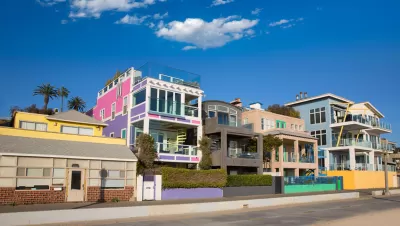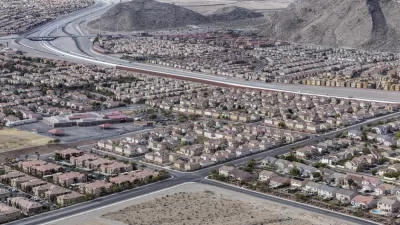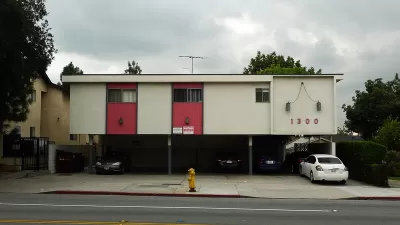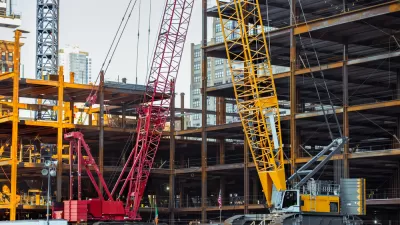Los Angeles home prices have long since skyrocketed above median income. A report by the Legislative Analyst's Office shows how difficult it would be to build L.A. out of its predicament.

Bianca Barragan discusses the findings of an LAO paper, among them the sobering fact that, "In order to keep housing prices in check, California overall would have had to build more (70,000 to 110,000 additional units each year), build denser, and build especially in the coastal areas (including Los Angeles) and central cities (as opposed to building mostly inland and in areas way outside of cities as has been done in the past)."
According to Barragan, rampant NIMBYism among existing residents compounds the problem. "The report notes that, while it is important that local residents have input on new housing, their resistance to new development is 'heightened' especially in coastal California, and it's slowing down the ability of developers to build more housing to alleviate the stress on the limited housing supply."
"New housing projects are also slowed by the length of time it takes for approvals. The average coastal California metro takes seven months to approve a project; in LA, it takes about eight months. The average for major US metros was just four and a half months." On top of lengthy approvals, the California Environmental Quality Act (CEQA) allows opponents to drag out the development process even further.
FULL STORY: How Much Does Los Angeles Have to Build to Get Out of Its Housing Crisis?

Planetizen Federal Action Tracker
A weekly monitor of how Trump’s orders and actions are impacting planners and planning in America.

San Francisco's School District Spent $105M To Build Affordable Housing for Teachers — And That's Just the Beginning
SFUSD joins a growing list of school districts using their land holdings to address housing affordability challenges faced by their own employees.

The Tiny, Adorable $7,000 Car Turning Japan Onto EVs
The single seat Mibot charges from a regular plug as quickly as an iPad, and is about half the price of an average EV.

Seattle's Plan for Adopting Driverless Cars
Equity, safety, accessibility and affordability are front of mind as the city prepares for robotaxis and other autonomous vehicles.

As Trump Phases Out FEMA, Is It Time to Flee the Floodplains?
With less federal funding available for disaster relief efforts, the need to relocate at-risk communities is more urgent than ever.

With Protected Lanes, 460% More People Commute by Bike
For those needing more ammo, more data proving what we already knew is here.
Urban Design for Planners 1: Software Tools
This six-course series explores essential urban design concepts using open source software and equips planners with the tools they need to participate fully in the urban design process.
Planning for Universal Design
Learn the tools for implementing Universal Design in planning regulations.
Smith Gee Studio
City of Charlotte
City of Camden Redevelopment Agency
City of Astoria
Transportation Research & Education Center (TREC) at Portland State University
US High Speed Rail Association
City of Camden Redevelopment Agency
Municipality of Princeton (NJ)





























